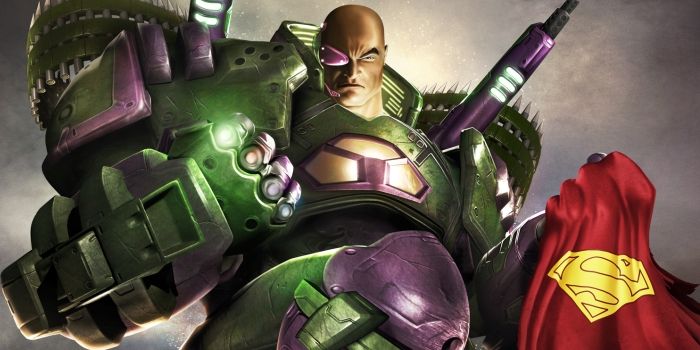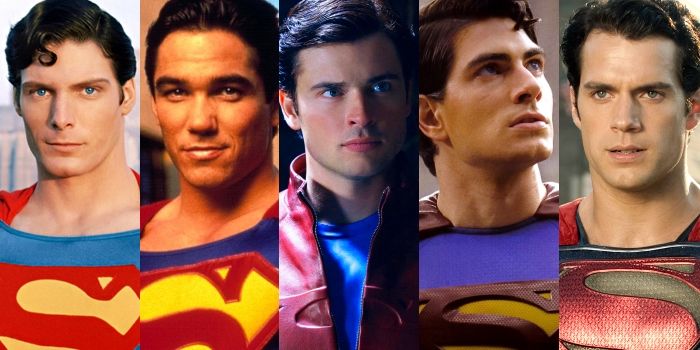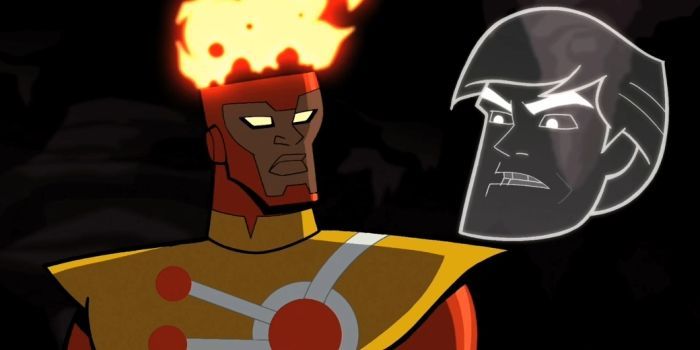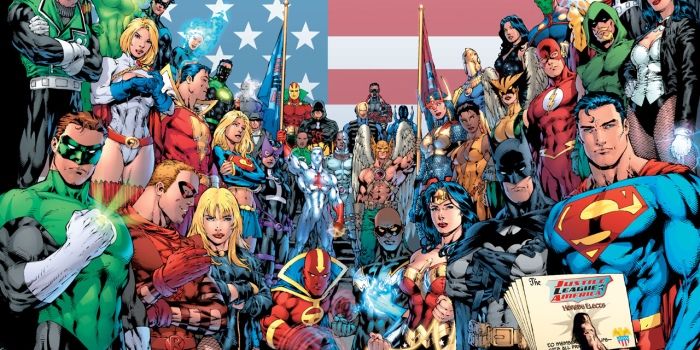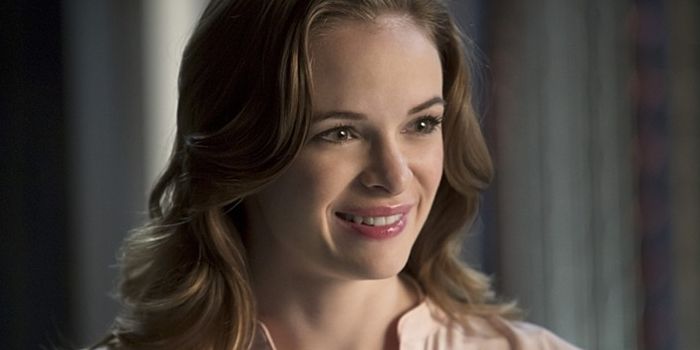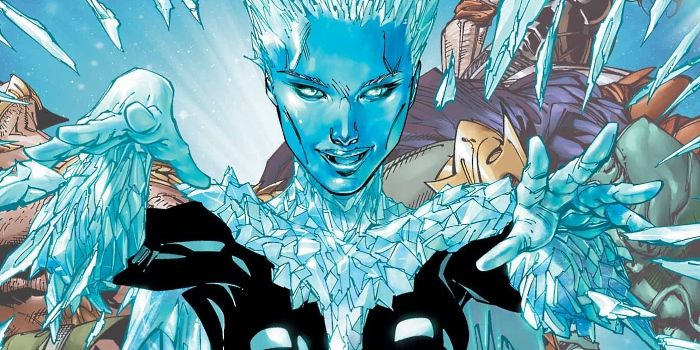The age of superhero cinema is upon us, as DC Entertainment and Warner Bros. get to building their Justice League universe one film at a time, Marvel Studios and Disney turn their Avengers universe into a blockbuster, cross-media enterprise, and other studios rush to gather up whatever independent properties aren't claimed already. But the growing popularity of comic characters doesn't necessarily mean better times for the writers and artists who created them.
The question of crediting and compensating comic book creators in the modern age - especially when said creations have taken on entirely new lives - has long been a problem for all comic publishers. But as DC Entertainment gains a head start on bringing their comic properties to the small screen as well as the big, their company policies have come under fire from some veteran comic icons.
Although most superhero fans keep their eyes trained on the printed page or the big screen, it's safe to say that there is always some form of dispute going on between a major comic book publisher/media conglomerate, and the creators or co-creators of a specific character, title, or series. Recent years have seen a number of disputes finally resolved, Superman co-creator Joe Shuster's estate's case against Warner Bros. among the most notable.
The morality, ethics, and of course, business of creator compensation have once again been brought to the forefront by writer Gerry Conway, a veteran of both Marvel and DC Comics. Apparently pushed to his breaking point, Conway took to Tumblr to clarify the reality now facing comic creators (of DC, specifically), and the "obnoxious" and "despicable" reasoning being used to keep profits out of the creators' pockets.
Conway's words have been construed by some as venomous, but the writer and creator of such characters as Firestorm, Killer Croc, Power Girl, and Jason Todd (the second Robin) set his emotion aside when explaining the changes in business practice that occurred when DC Comics became DC Entertainment, a "fully subsumed cog in the Warners Entertainment wheel." In short, when business-minded executives (not former writers/artists/publishers) began making the decisions to help build a multimedia empire of animation, comics, and feature films.
Some context is needed, so it's important to know that the age of writers and artists submitting their work to DC and forfeiting any rights to the content came to an end in the 1970s, when DC implemented a system to provide creators with compensation going forward - provided their creations were original, not "derivative" of another comic creation.
Unsurprisingly, the times have changed, with Conway explaining that the birth of DC Entertainment led him to discover that the publisher had modified its definition of "derivative," deciding that Power Girl (Superman's cousin, co-created by Conway) was now seen as derivative of Jerry Siegel and Joe Shuster's Man of Steel, making them her true 'creators' - even though they are definitely not.
If you can already see how this logic is a tricky line to walk, then you, like Conway, know that his lump sum payment and notice of no further compensation was just the beginning. Soon came DC's decision to get less proactive with their payments, and only issue contracts for compensation if the creators requested one, in print, for each and every character that may one day be adapted (and must do so before said adaptation).
That's already questionable enough, although Conway had previously requested help from the fans to bring adaptations to the attention of creators, so they wouldn't miss out on their due compensation. Conway stated at the time that he understood DC's motivations, since their responsibility is to the shareholders and bottom line, not creators any longer.
But he's not alone in calling attention to the problem, as comic writer/artist Rob Liefeld soon took to Twitter to support Conway's growing frustration, and criticizing DC's policy from his own experience:
I'm glad that legendary creator @gerryconway brought this to light today in his blog. The "derivative" is a way to screw creators.— robertliefeld (@robertliefeld) April 29, 2015
My female rendition of Dove, previously a boy, is considered a "derivative". I also do not get paid for Kestrel, the villain I co-created.— robertliefeld (@robertliefeld) April 29, 2015
Somehow, I think that Frank Miller gets compensation for his "derivative" Carrie Kelly. Hmmmmmmm......— robertliefeld (@robertliefeld) April 29, 2015
Finally, we arrive at the part of the story Conway views as "obnoxious" and "despicable": the point where DC Entertainment, viewing its comic characters and properties as products first and foremost, starts putting its own rules to some baffling uses. And sadly, it's The Flash's Caitlin Snow who is offered as an embodiment of DC's "tortured logic."
Beginning her life (created by Conway and artist Al Milgrom) as 'Crystal Frost,' the Firestorm villain would eventually acquire the curse of an ice-cold heat vampire, taking the moniker of 'Killer Frost.' As part of DC Comics' New 52 re-launch, Killer Frost had her name changed to 'Caitlin Snow' (wink wink) as part of a new origin story by writer Sterling Gates and artist Derlis Santacruz.
Conway applies the logic now established by DC Entertainment as it pertains to their comics and the live-action Flash, and his grievance becomes clear:
You’ll be pleased to hear (I hope) that DC agrees I and Al Milgrom are the co-creators of all manifestations of “Killer Frost.” We are also considered the co-creators of Crystal Frost. And, of course, by the twisted logic that credits Power Girl as a derivation of Superman, Al and I must also be the creators of Killer Frost’s New 52 secret identity, Caitlin Snow. Right? No. We’re not. And DC insists we are not. And I agree with DC. Caitlin Snow was created by Sterling Gates and Derlis Santacruz.
Except, according to DC Entertainment, she wasn’t. Because she was “derived” from the original creation of Killer Frost. Which means Al Milgrom and I created her. Except, according to DC Entertainment, we didn’t. Nobody created her. Or, rather, nobody gets credit and creator equity participation for creating her.
And that, my friends, is truly obnoxious and despicable.
Regardless of your thoughts on creator rights, as opposed to later writers who shape, re-shape, and evolve said characters in new ways, there's no question DC is using some ethically questionable logic to deny creators (old or new) compensation.
This is likely just the newest chapter in the ongoing struggle between the comic creators never expecting their work to become million-dollar products, and the publishers looking to keep said millions to themselves. Although DC Entertainment's policies for existing creators' rights (neither Liefeld nor Conway address the rights offered or withheld from new creations) are clearly being suspiciously used, they aren't the only publisher encountering strange controversy.
Writer/director Joss Whedon was quite open about the role played by veteran comic writer Jim Starlin in his approach to the setting and design of Thanos the Mad Titan in The Avengers. Yet when the film released, Starlin attended a screening to find his creation had been adapted without his knowledge... or credit, compensation, or even an invitation to a free screening.
Marvel addressed the problem for future films, but the fact that even an iconic creator's work could somehow slip through the cracks speaks to the shift from old-school comic publisher to multi-billion dollar media empires. What do you think of Conway's comments? Are you shocked to hear that DC Entertainment is going to such lengths to keep profits from the creators, or do you accept this as part of the game?
_____________________________________________
Next: Why DC's Separate TV/Movie Universe is a Good Thing
_____________________________________________
The Flash airs Tuesdays @8pm on The CW.
Source: Gerry Conway, Comics Equity, CBR, Rob Liefeld

